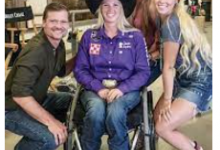
Jobs and Careers
The 10 Most Frequent Questions In A Job Interview
Learn the 10 most frequent questions in a job interview and get ready to guarantee your success.
- Are you looking for a job? Do not fail in your next interview.
- These are the 10 most frequent questions of recruiters; learn how to answer them to be successful.
- Clear and positive answers are the key to getting the position you are looking for.
Recruiters, who take job interviews want to know if the candidates will adapt to the vacancy, want to inquire about their skills and work experience and about the enthusiasm and interest of each of them. To find out about these points, most of the time, they repeat the same questions.
Take note of the questions that the human resources personnel in charge of the selection of candidates usually do in each job interview.
The 10 most frequent questions
- Tell me about yourself: Your answer should be clear and last between 3 and 5 minutes. You should focus on giving an account of the most relevant areas for the work in question, mention some of your achievements, demonstrate your enthusiasm and avoid irrelevant information such as how many children you have.
- What are your strengths or abilities? To answer this question you should focus on what the company you want to enter is looking for.
- What are your weaknesses? Choose one of your weaknesses that is not important for employment.
- Why did you leave your previous job? Your answer must be positive even if you left in bad conditions of your previous position. And never criticize your previous employment.
- Why do you want this job? You must respond by implying that you are the indicated or indicated for the position. For this, your answer can link your skills with the needs of the firm, show you interested in the product or in the sector and never say you want the position because it is local or because you only need work.
- Tell me about a problem you have had to face and how you solved it: With this, the recruiter will want to know how you put your skills into practice and how you act under pressure. As an example, you can cite a situation in which you have collaborated in its resolution.
- Tell me about some of your achievements that you feel proud of. Mention an example where the benefits for the company are tangible.
- What are the objectives you pursue with your career? With this question, they will try to find out how long you want to stay in the company.
- What are your salary expectations? If you are pressured to give a figure you should give one that is reasonable.
- What do you know about our organization? To answer you must know the structure, finances, products and services of the firm, about the competition and marketing strategies.






